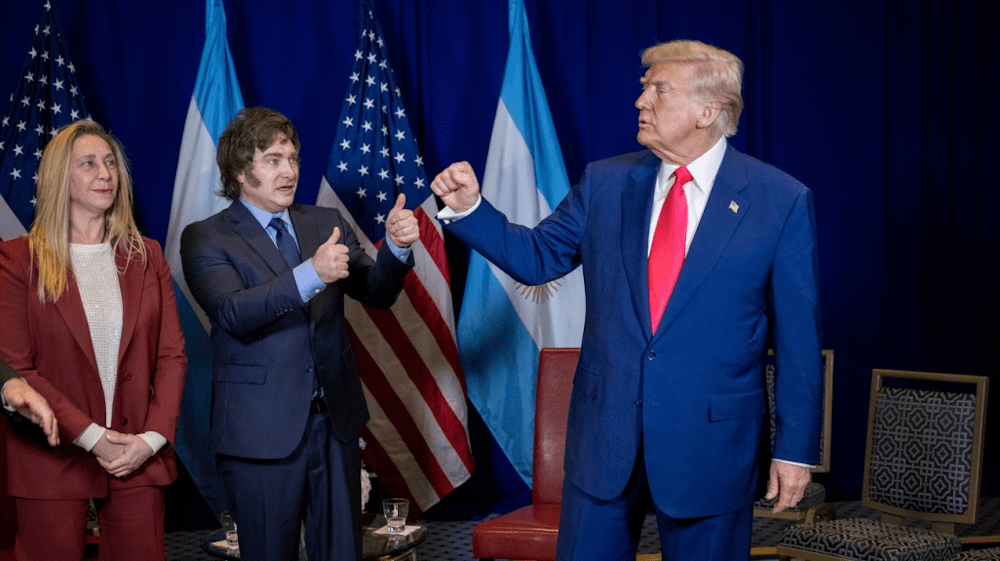The Government asserts that “everything marches according to the plan,” emphasizing its strategy to mitigate the effects of the international crisis on Argentina. In the face of a significant downturn in global stock markets, which saw declines of up to 13%, the administration of Javier Milei is maintaining a calm demeanor. While remaining vigilant to ongoing developments, the prevailing sentiment within the government is one of composure. All operations are proceeding as scheduled, they reiterate.
In light of the current international landscape, officials acknowledge the necessity of maintaining fiscal discipline while managing public finances. They assert that Argentina is better equipped to navigate this external shock compared to previous instances. “The current macroeconomic environment is stable, characterized by both fiscal and financial surpluses,” they stated.
On a challenging day for the markets, the BCRA’s sale of only $35 million led to a 1% fluctuation in the exchange rate, while the country risk index experienced an increase of approximately 30 points, according to reports. Experts caution against making hasty predictions regarding the potential impacts of President Donald Trump’s tariff policy. However, they suggest that should the policy yield positive results, Argentina and the broader Latin American region stand to gain. Conversely, if the outcomes are unfavorable, the nation may still find itself in a favorable position, contingent upon the tariffs imposed being lower than those of competing exporters.
Furthermore, it is noted that Argentina stands out as the pioneering nation actively engaged in efforts to eliminate barriers to finalize a zero tariff agreement. According to official sources, more than half of the 16 observations have already been surpassed. In a strategic move, Pablo Lavigne, the Secretary of Production Coordination, embarked on a trip to the United States over two weeks ago to further advance negotiations.
Last week, President Milei delivered a significant announcement during his speech at Mar-a-Lago, highlighting the progress made in ongoing negotiations. He reported that 9 out of the 16 necessary requirements have been fulfilled and has directed both the Foreign Ministry and the Ministry of Commerce to expedite the completion of the remaining criteria. Furthermore, he projected that Argentina will focus on harmonizing tariffs for a selection of approximately 50 products, facilitating smoother trade between the two countries.
In the aftermath of the unsuccessful informal meeting with President Trump, officials at the Pink House are minimizing the significance of the event while reaffirming their support for Chancellor Gerardo Werthein. The official response concerning the agreement with the International Monetary Fund indicates that all developments are proceeding as scheduled. The economic team expresses strong confidence that the Board will approve the new loan without any obstacles.
In the corridors of the IMF, uncertainty persists regarding the timeline for the board’s meeting to address the Argentine loan. There is potential for a venture to occur later this week, as indicated by Kristalina Georgieva, the head of the agency. She expressed optimism that the agreement would be executed prior to the spring meeting scheduled for April 21. Furthermore, concerning the agreement with the IMF, there are ironic observations regarding the analyses suggesting that the board is likely to impose additional demands. It is important to note that confirmation has been received regarding the requested amount, which stands at US$20 billion, with an initial disbursement set at 40%.

